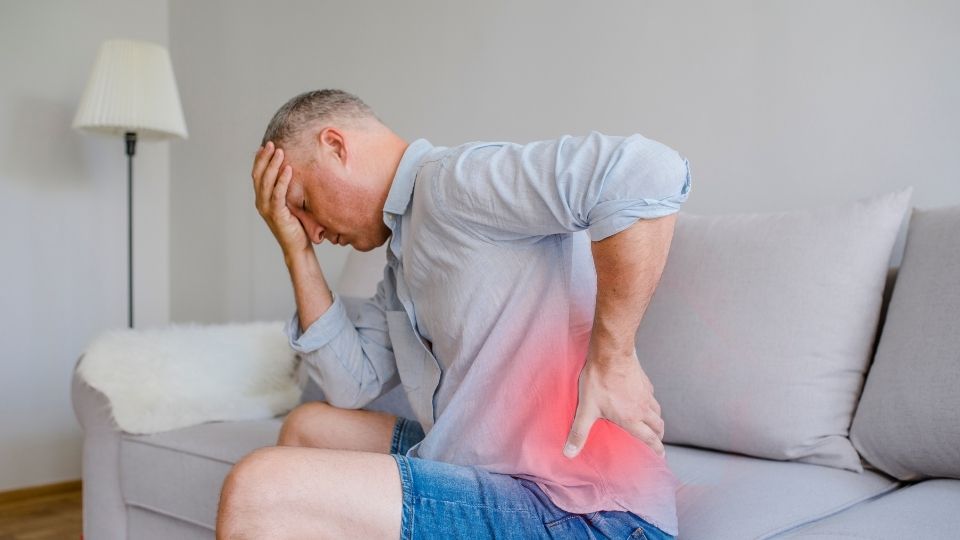HEART Research
Evidence-Based Alternative Pain Management Techniques for Chronic Pain
Pain is one way our bodies let us know that something is wrong. It alerts us if we have been injured, or if our bodies need care. Most pain is short-lived or “acute,” and subsides with minimal effort—but pain that lasts longer or doesn’t go away as quickl...
Anxiety and Depression: Can Diet Help?
In November 1944, Dr. AncelKeys and Dr. Josef Brozek, faculty at the University of Minnesota, conducted a study on the effects of starvation, known as the Minnesota Starvation Study (Baker & Keramidas, 2013). Through this study, it was observed that a lac...
Cognitive Behavioral Therapies for the Management of Chronic Pain
Chronic pain is pain that lasts longer than six months and may continue even after illnesses or injuries have healed (Cleveland Clinic, 2017). Pain signals in the nervous system can remain active for several years if they are altered in the spinal cord, b...
Diet, Nutrition, and Substance Use Disorder
Consuming a healthy diet can benefit everyone—especially individuals with substance use disorder (SUD), a disorder that occurs when frequent use of drugs or alcohol causes impairment, health issues, and difficulties with managing daily responsibilities (S...
Exercise and Chronic Pain
Chronic pain is perhaps the most pervasive medical issue in the United States. The long-term impacts of chronic pain often cause individuals to reduce or eliminate physical activity.
Exercise Tips for Chronic Pain Management
Chronic pain is a term used to describe pain that persists for longer than the expected time frame of healing. Patients with chronic pain commonly experience collateral effects to their primary condition. These include depression, sleep disturbance, fatig...
First Responder Mental Health
Communities spend thousands of dollars on first responders to protect them physically: body armor for law enforcement officers, heat resistant gear for firefighters, gloves and reflective clothing for Emergency Medical Services (EMS) personnel. Supporting...
Substance Use Disorder Stigma: What it is and How You Can Prevent it
Stigma is an attitude, discrimination, or prejudice directed towards an individual or a group and can prevent a person from seeking out proper care, support, and treatment (Angermeyer & Dietrich, 2006).
Recovery Relationships
You Are Not Alone Recovery and relationships can seem difficult on their own, while maintaining a healthy relationship during the recovery of one or both partners can seem nearly impossible. However, it is helpful to recognize that if you or y
Mindfulness for Chronic Pain Management
“ Mindfulness is ‘paying attention in a particular way: on purpose, in the present, and non judgmentally.’ ”
Neonatal Abstinence Syndrome (NAS): What You Need to Know
This fact sheet will talk about why and what to do, with recommendations for safe treatment and support during pregnancy.
Pregnancy and Substance Use
This fact sheet will cover (1) the consequences of substance use and (2) the current recommendations for substance use during pregnancy.
Online Etiquette Guidelines
Below is a list of guidelines and general rules of thumb that, although are not mandatory, can increase communication quality in online platforms. They can be followed when presenting or conducting an online meeting with business
Opioids and Other Common Substances: What You Need to Know
This fact sheet focuses on opioids, a highly addictive class of substance with a high risk of unintentional overdose death. We review how opioid overdoses can be temporarily reversed with naloxone (Dhalla, et al., 2009; Straus, et al., 2013) and some impo...
Reducing Stigma Towards Opioid Use Disorder Treatment
To better identify, understand, and eliminate stigma, this fact sheet discusses how stigma against treatment hinders recovery, evidence-based treatments for OUD, and strategies to combat OUD treatment stigma.
Reducing Stigma Toward Medication-Assisted Treatment
Recovery and relationships can seem difficult on their own, while maintaining a healthy relationship during the recovery of one or both partners seem nearly impossible.
Stigma and Mothers Using Opioids
Parenting and pregnancy in the context of substance use is a complicated topic. It is recognized as an important concern for child welfare (Chandler et. al, 2013). Many public health officials, social workers, policy makers, and community members want to ...
Substance Use Disorders and Youth: How Parents and Communities can be Involved
This factsheet examines the effects of substance use on brain development in youth, the impact of Adverse Childhood Experiences (ACEs) on youth substance use, and interventions parents and community members can use to reduce their children’s risk.
Public Health Violence Prevention: Supporting Law Enforcement
The integrated biological-psychological-social model of health recognizes the complexity in the ways individuals are influenced by their situations, with violence as the unfortunate result of the wrong mix of circumstances. The public health approach to v...
Youth Treatment for a Substance Use Disorder and Common Barriers
This factsheet reviews youth substance use treatment, barriers that they face, prevention interventions, and resources for parents and community members.





















